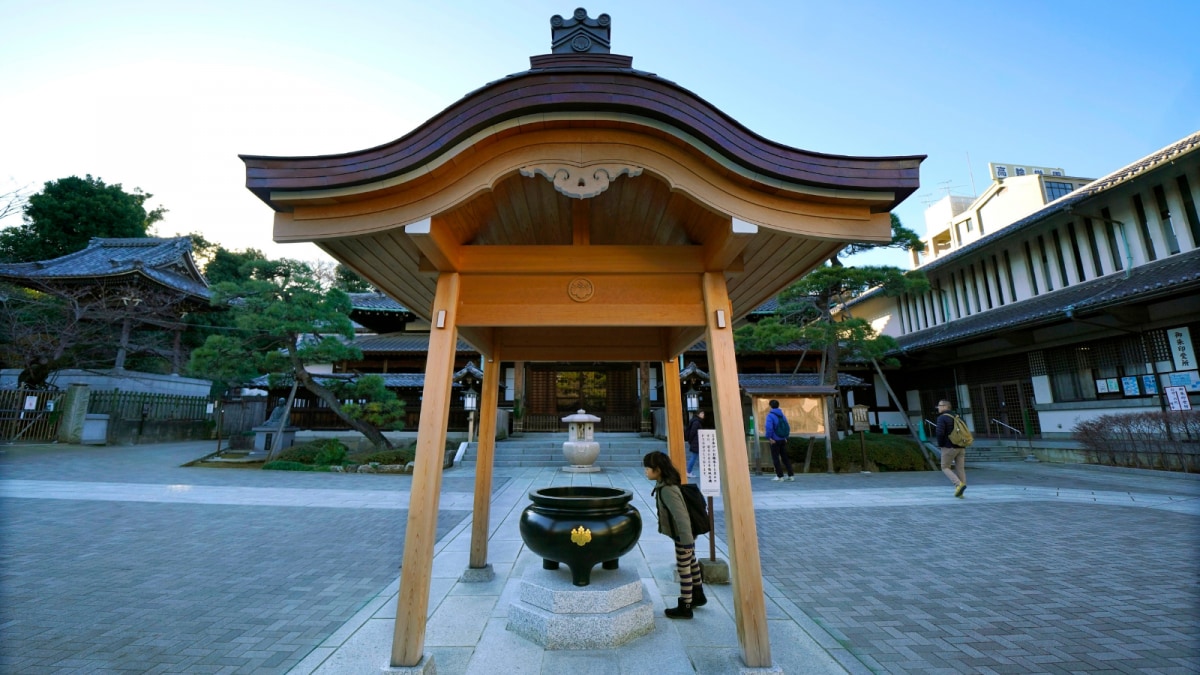Last Updated:
Japan’s business culture shines in its five oldest companies: Kongo Gumi (578 AD), Nishiyama Onsen (705), Koman Hotel (717), Hoshi Ryokan (718), and Genda Shigyo (771)

In 578 AD, Korean builder Shigemitsu Kongo formed Kongo Gumi in Japan to build Buddhist temples with local workers. (Representative/AP)
Prime Minister Narendra Modi’s visit to Japan has reignited curiosity among Indians about the island nation, famed for its discipline, resilience, and its remarkable rise from post-war devastation to a global economic powerhouse. This curiosity naturally leads to questions about how Japan achieved its remarkable position.
Japan’s economic progress is largely driven by its robust business culture, a concept that underscores the importance of entrepreneurship over reliance on government jobs. This principle is universally applicable; history shows that the prosperity of developed nations is rooted in their business culture.
Recommended Stories
Japan today stands among the world’s most developed nations, not just in terms of wealth, but across all key indicators of the Human Development Index, including health, education, life expectancy, and infrastructure. Its citizens enjoy some of the longest lifespans globally, supported by world-class infrastructure, while the country remains decades ahead in science and technology.
Japan’s remarkable journey can be traced back centuries; in 578 AD, it became home to the world’s first company, Kongo Gumi, which continues to operate even today. At that time, Islam had yet to emerge (around 630 AD), and Christianity had only a limited following.
During that period, Buddhism held a strong global influence, and since its inception, Kongo Gumi has been closely tied to this heritage, specialising in the construction of Buddhist temples. Headquartered in Osaka, Japan, the company remained under the management of the same family for nearly 1,400 years. However, in 2006, financial difficulties led to its takeover by the Takamatsu Group. That same year, its turnover was reported at around Rs 600 crore.
How Kongo Gumi Began
In 578 AD, Korean builder Shigemitsu Kongo was invited by Japan’s royal family to construct a Buddhist temple. With locals lacking temple-building skills, he formed Kongo Gumi, uniting carpenters and workers. The company thrived for nearly 1,500 years before becoming a subsidiary of the Takamatsu Group.
Japan’s Strong Business Culture
Japan’s business culture is evident from the fact that the world’s five oldest companies were founded there. After Kongo Gumi (578 AD), came Nishiyama Onsen Keiunkan (705 AD), Koman Japan Hotel (717 AD), Hoshi Ryokan (718 AD) and Genda Shigyo (771 AD), operating in sectors such as hospitality and paper goods.
According to a 2016 Statista report, Japan had 33 lakh registered companies, compared to 14 lakh in India and 77 lakh in the US. This means one corporate entity for every 38 people in Japan. The country’s per capita income is $44,570 (Rs 36.6 lakh), while India’s is $7,130 (Rs 5.6 lakh) and the US exceeds $70,000.
India’s Oldest Company
India’s oldest company is the Wadia Group, founded in 1736 during the Mughal era. The group remains active, with flagship companies like Britannia Industries, Bombay Dyeing, and Bombay Burmah Trading Corporation. The chairman, Nusli Wadia, is the grandson of Dina Jinnah, daughter of Pakistan’s founder Mohammed Ali Jinnah.
Japan’s Economic Miracle
Japan’s prosperity is rooted in a centuries-old business culture. Companies like Kongo Gumi demonstrate how long-term vision and innovation helped Japan become a global leader in economy and technology. The country’s experience offers a lesson for nations like India: fostering entrepreneurship and a strong business culture is crucial for sustainable growth, rather than relying primarily on government or private-sector jobs. Japan’s story shows that societal passion for business drives true economic progress.
- Location :
Japan
Loading comments…
Read More




